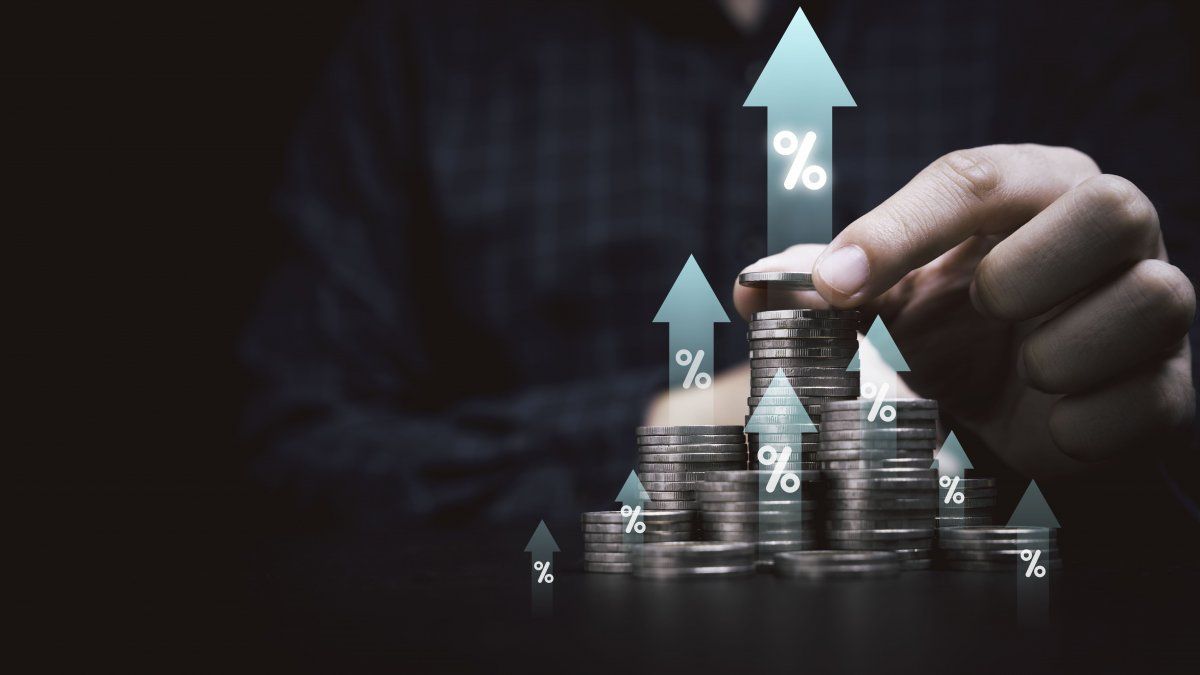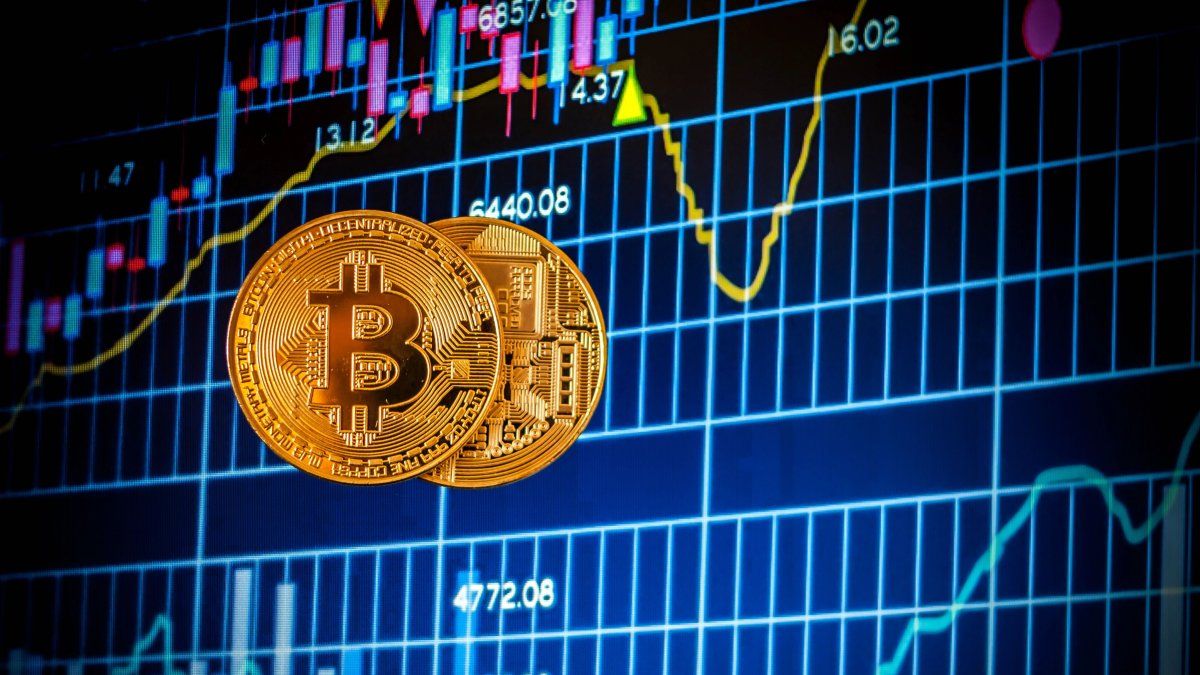Concerns about a further escalation of the Russian war of aggression had dominated the debate about the delivery of heavy weapons to Ukraine. New threats are now coming from the Kremlin.
Russia’s President Vladimir Putin has again threatened Ukraine’s supporters – with cuts in gas supplies, but also with military consequences.
Anyone who wants to intervene from outside and create a strategic threat that is unacceptable to Russia must know that the answer will be “quick, quick,” Putin said in St. Petersburg on Wednesday. Despite concerns about an escalation of the Russian war of aggression, the German government has decided to also supply heavy weapons to Ukraine. On Wednesday, the traffic light coalition and the opposition agreed on a compromise. Since Wednesday, Poland and Bulgaria are the first two countries without Russian gas. And here, too, Putin threatened consequences for other countries.
Violent threats to Ukraine supporters – “fear propaganda”
Three months after his troops marched into Ukraine, Putin threatened that Russia had “all the tools” for possible counterattacks. At a gathering of top officials, he said: ‘And we won’t brag. We will use them when necessary. And I want everyone to know that.” The Kremlin chief had also put the country’s nuclear weapons on increased alert as a warning to NATO.
The Green politician Anton Hofreiter, however, considers such an escalation to be unlikely. He does not assume that “there are a lot of suicide bombers in the Kremlin,” said the chairman of the Bundestag’s Europe Committee to the “Spiegel”. Hofreiter warned against adopting the “Kremlin’s fear propaganda”.
Compromise in the debate on arms deliveries
Concerns about a further escalation had also determined the debate about the delivery of heavy weapons to Ukraine – Chancellor Olaf Scholz had therefore hesitated for a long time and had been heavily criticized for it, above all by the CDU, but also by his own traffic light coalition. The federal government only announced such deliveries on Tuesday, and on Wednesday the government and opposition agreed on a joint application.
Foreign Minister Annalena Baerbock defended the decision to deliver heavy weapons – also against the background of warnings of an imminent nuclear escalation. When asked what role the threat of nuclear war played in the decision, the Greens politician said in the Bundestag that Russia’s next step in the war is entirely at Putin’s discretion. Baerbock added: “That’s why we can’t completely rule out anything.” On Tuesday, Defense Minister Christine Lambrecht (SPD) promised Ukraine the delivery of the Gepard anti-aircraft tank from industrial stocks.
“The faucet was turned off”
In the gas dispute between Russia and the West, the state-owned Gazprom company stopped delivering to Poland and Bulgaria on Wednesday. “The tap was turned off,” said Poland’s climate minister Anna Moskwa. The reason given by Gazprom was that the companies PGNiG and Bulgargaz did not pay in rubles on time. Sofia and Warsaw, on the other hand, emphasized that they had fulfilled their obligations.
The decision will initially have no effect on the Federal Republic. “Currently, security of supply is guaranteed here,” said the Ministry of Economic Affairs.
The background to the gas conflict is a dispute over the terms of payment. In March, Putin demanded that Western countries must open accounts with Gazprombank effective April 1 to pay for deliveries. Otherwise, these would be set for “unfriendly” countries. According to a decree signed by Putin, payments can still be deposited into the Russian account in euros or dollars. Gazprombank converts the money into rubles and transfers the amount in Russian currency to Gazprom. And here, too, Putin threatened other countries – with similar steps as against Poland and Bulgaria.
Because of the sharp rise in energy prices in Germany, the federal cabinet has now launched a billion-euro relief package for citizens. Train and car drivers will benefit, as will almost all workers. But it is controversial whether the aid can even come close to cushioning the skyrocketing prices. Ultimately, that also depends on the course of the war – and a possible stop in the supply of Russian gas.
Guterres reaches Kyiv
After his visit to Putin, UN Secretary-General António Guterres arrived in Kyiv on Wednesday. There he will meet President Volodymyr Zelenskyy and Foreign Minister Dmytro Kuleba on Thursday. A visit to an as yet unknown location outside of the capital is also planned. As in the previous visit to Moscow, one of the main topics is likely to be the situation in the southeastern Ukrainian port of Mariupol, where Ukrainian troops and civilians are surrounded by the Russian army.
Unexpected development: Russia and USA with prisoner exchange
Amid the Ukraine conflict, Russia and the US have surprisingly carried out a long-discussed prisoner swap. Russia released American Trevor Reed and received Konstantin Yaroshenko, who had been convicted in the United States, according to the Russian Foreign Ministry. US President Joe Biden confirmed Reed’s release in Washington. Biden and Putin discussed the exchange at their Geneva summit in June. In view of the extremely tense relations, the development is particularly unexpected.
Pressure on former Chancellor Schröder is growing
Meanwhile, former Chancellor Gerhard Schröder is coming under increasing pressure because of his attitude towards Putin. In addition to being expelled from the SPD, Schröder is now threatened with further consequences. The call for sanctions against Schröder grew louder on Wednesday. The Bundestag is also discussing limiting the equipment for former chancellors. In an interview with the Berlin boss of the “New York Times”, Schröder had fueled outrage at his behavior. SPD leader Saskia Esken had already asked Schröder to leave the party on Monday. “He earns his money working for Russian state companies,” she noted.
Mysterious attacks in Transnistria
Is another front looming in the back of Ukraine? There are mysterious attacks in the Moldovan separatist region of Transnistria. Transnistria and Russia hold neighboring Ukraine responsible for this, while the Kiev leadership assumes Russian attempts to stir up unrest in Ukraine’s rear. Since Monday there have been explosions in several places in Transnistria, and two radio masts have been destroyed. A Western expert currently assesses the risk of an escalation in Transnistria as low. The Russian troops there are too weak to advance against the Republic of Moldova or Ukraine, said Marcus Keupp from the Military Academy at ETH Zurich.
Steinmeier warns Kremlin: NATO will defend every inch
After talks with Slovakian President Zuzanna Caputova, Federal President Frank-Walter Steinmeier warned the Kremlin not to underestimate NATO’s readiness to defend itself. “Our democracies are strong and well-fortified,” he said. “They are ready and able to defend every inch of Alliance territory – together.” Caputova expressly thanked Steinmeier for Germany’s military assistance. “They say you can tell who your friend is when you’re in trouble.”
Source: Stern
David William is a talented author who has made a name for himself in the world of writing. He is a professional author who writes on a wide range of topics, from general interest to opinion news. David is currently working as a writer at 24 hours worlds where he brings his unique perspective and in-depth research to his articles, making them both informative and engaging.




